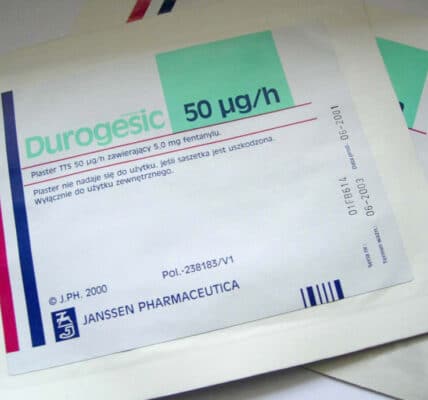Reducing Opioid Use With Cannabis

Pain is the main reason that people become addicted to opioids. Opioids have been used to treat chronic pain for centuries, despite a mixed track record of effectiveness. One thing opioids are very effective at is creating a dependency among people using opioids to treat chronic pain.
We have written about new non-opioid painkillers that have shown promise in clinical trials. Another approach is to reduce the amount of opioids prescribed by using other drugs, such as ibuprofen. The reduction in the number of prescriptions for opioid drugs has contributed greatly to a decline in the number of people with opioid use disorder (OUD) and the number of overdose deaths.
One approach that has proven effective at reducing the opioid use of persons prescribed opioids for chronic pain is the addition of medical cannabis to the treatment regimen. A study out this month from the journal Pain Management tested cannabis use with 102 patients of a pain clinic, while 53 patients at a nearby clinic did not receive the cannabis.
The study followed the patients for an entire year. At baseline, both groups were getting an average of 40mg/day of opioid medication. The cannabis group was prescribed 2.5mg/day of cannabinoid oil, slowly increasing to 15mg/day in one year. The researchers claim “the hallucinatory component of cannabis [was] kept to low levels, causing minimal euphoric effects.”
At one year out, 46 patients had dropped out of the cannabis cohort due to adverse side effects. Amazingly, for the 56 patients who remained, median opioid use per day had plummeted from 40mg to 2.7mg. This is a voluntary reduction of use, replacing it almost entirely with cannabis. For the control group, which had only one dropout, median opioid use increased from 40mg/day to 43mg/day.
As a side benefit, researchers found that patients in the cannabis groups reported significantly fewer problems with insomnia. Further, they reported some individuals in the cannabis group had ceased to be “disabled” by their chronic pain and were able to return to the workforce.
These are dramatically good findings that deserve to be replicated. Replication is simple and inexpensive: Add a cannabis prescription to a pain treatment program and watch it bring down the opioid use.
An earlier study, published in the journal Pain Physician in 2021, similarly found a dramatic reduction in opioid use among patients with chronic pain prescribed a cannabis painkiller. The study was conducted in the heart of “opioid alley,” the Allegheny Health Network in Pittsburgh, Pennsylvania.
Doctors looked at 115 patients receiving “chronic opioid therapy” (COT) for chronic pain. Again, a large number (30) dropped out of the six-month trial due to “ineffectiveness or side effects.” Of those remaining in the trial, there was a substantial reduction in daily morphine milligram equivalent (MME) used:
- 67.1% average decrease in daily MME/patient from 49.9 to 16.4
- 73.3% average decrease in MME at six-month follow-up from 49.9 to 13.3
The researchers are fairly adamant about the need to allow patients to use both medical marijuana and their usual opioid prescription rather than force a substitution. They explain:
Allowing for a temporary short-term period where patients may trial medical cannabis, while concomitantly gradually weaning their COT, is also essential in determining medical cannabis’ individual effectiveness for that patient’s specific type of chronic pain, which should serve to maximize long-term opioid reduction results and hence decrease opioid-related overdose deaths.
So there you have it: A spoonful of THC helps the opioid use go down. These studies should be welcome news throughout America as doctors and insurers look for inexpensive ways to treat chronic pain while curbing opioid use.
Written by Steve O’Keefe. First published August 19, 2025.
Sources:
“Opioid reduction in patients with chronic non-cancer pain undergoing treatment with medicinal cannabis,” Pain Management, August 11, 2025.
“Medical Cannabis Used as an Alternative Treatment for Chronic Pain Demonstrates Reduction in Chronic Opioid Use — A Prospective Study,” Pain Physician, January/February 2022.
Image Copyright: vatelvaleriya.




